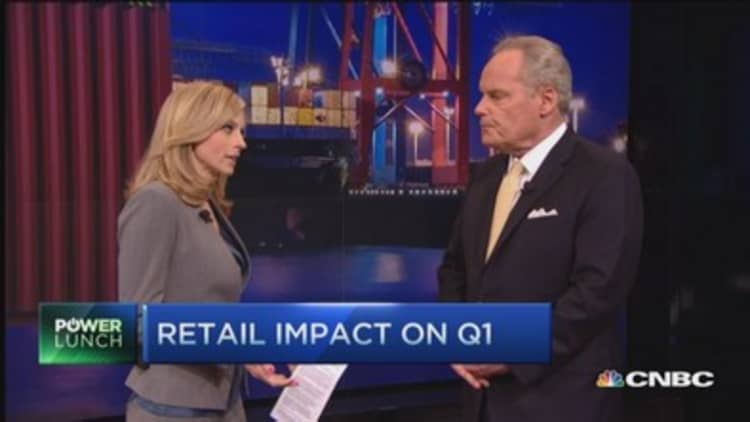So goes New York City, so goes the rest of the country.
At least, that appears to be the trend when it comes to predicting a fashion brand's sales. And if Michael Kors follows in the footsteps of fellow handbag companies Vera Bradley and Coach, things don't bode well for the affordable luxury label.
According to analysis by Sterne Agee's Ike Boruchow, when New York City shoppers were searching for Coach handbags on Google more frequently than U.S. customers, the brand's comparable-store sales increased for six straight quarters.
Read MoreExcuses, excuses. Luxury prices at a tipping point
When this trend reversed in January 2011, however, the label's same-store sales "began a downward trajectory" the following quarter, Boruchow said. Two years later, Coach's domestic comparable sales were negative.
Similarly, after posting comparable-store sales gains of 20 percent or higher throughout 2009 and 2010, eight quarters after New York City Google search trends reversed, Vera Bradley's same-store sales turned negative.
Read MoreMillennials redefine luxury—and the stakes are high
"This finding bodes poorly for Michael Kors (where online searches in NY began tapering off over two years ago), as it implies that negative U.S. comps are on the horizon," Boruchow wrote in a note to investors Tuesday.

Analysts have been eyeing Kors' same-store sales deceleration as signs that the fledgling brand is reaching maturity in the U.S.
After posting several quarterly comparable-sales gains near 40 percent following its initial public offering in 2011, Kors' U.S. same-store sales trends have slowed over the past two years, ending the most recent quarter up 6.8 percent on a constant currency basis.
Read MoreMichael Kors' next act? Selling this hot item
Despite the slowdown, it was the company's 13th consecutive quarter of revenue, comparable-store sales and earnings growth. On that earnings call in February, CEO John Idol identified six areas of growth for the luxury brand, including new store openings and expanding its presence in menswear and jewelry.
On the other end of Boruchow's analysis is another luxury label, Kate Spade. He noted that the brand is still being searched on Google more in New York City than the rest of the country, and the spread continues to widen. That indicates the company is gaining more acceptance from trendsetting shoppers in NYC, he said.
"This bodes well for Kate Spade's short- and long-term growth prospects," he said.


